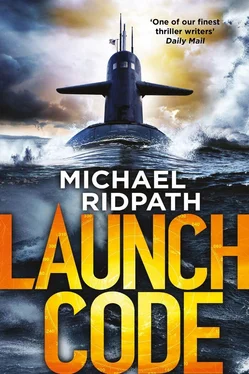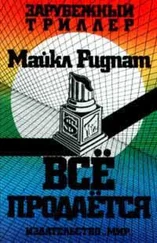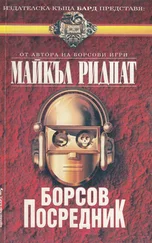My father owned and edited the newspaper in a small town in southern Pennsylvania. I knew he wanted me to take over from him eventually, but it became clear to both of us as I grew up that I was more interested in science than journalism. When I told him I wanted to go to the US Naval Academy at Annapolis, he hadn’t argued. The Vietnam War was just coming to an end, joining the military was a far from fashionable thing for an eighteen year old to do, but he understood that I believed I was serving my country against a real enemy. He believed I was too.
I had graduated from the Academy, majoring in Physics rather than the more common Engineering, spent six months at the nuclear propulsion school in Florida, six months training on the prototype reactor in Idaho and then three months on the Submarine Officers Basic Course at Groton. After all that, I had joined the Alexander Hamilton as an ensign. I got my nuclear qualifications, had been promoted to lieutenant and completed my fourth patrol on the boat.
I had made friends, good friends. One of these was Lars da Silva, who had graduated in the same class as me from the Academy, and had also joined the Hamilton as an ensign. His olive skin, green eyes and thick blonde moustache testified to his heritage: his mother came from Midwestern Swedish stock and his father was Brazilian. We shared a stateroom with a third junior officer, Matt Curtis: it was known as the ‘JO Jungle’.
Another was Craig Naylor. Craig was a couple of years older than Lars and me. Broad-chested with a round face and winning smile, he was serving his second tour on patrol, his first having been on a fast-attack submarine in the Pacific. He was one of the four ‘department heads’ on the boat. In his case he was weapons officer, which meant he was in charge of the missile command centre, and of actually launching the submarine’s nuclear weapons.
Craig was married. Kind of. Two weeks after he had returned to his married quarters in Groton from his last patrol, his wife Maria had announced she was leaving him. She said it wasn’t for anyone else; it was just that to be a submariner’s spouse was to be a wife for only half the year, a half wife. It was no way for a woman to live her life, no way for a couple to coexist, no way to bring up children. She was going to end it before it drove her any crazier than she already was.
Craig was bewildered. Such separations were a common enough event in the submarine service; Maria did have logic on her side. But she had never mentioned any of this before. There had been no ‘me or the Navy’ ultimatum.
Then it had all become clear. There was a guy called Tony Opizzi; an insurance salesman based in nearby New London.
Craig had needed company, fast, and Lars and I were happy to provide it. No one could deny that Craig was an all-round good guy. He was a straightforward, upbeat man who just made you feel good about yourself. He was great to be with on a submarine. He was great to be with in a bar.
Lars and I were not the only people who felt sorry for Craig. His younger sister, Vicky, who had just started working for a bank on Wall Street, invited Craig and a couple of his friends to stay with her in the city over the Labor Day weekend.
Would Lars and I like to come?
You bet we would.
Vicky Naylor took us to a bar on the Upper West Side, four blocks from her apartment, where the three of us were crashing on her floor. There she introduced us to Kathleen and Donna, two friends from college.
The bar was jumping on a Friday night, even on a Labor Day weekend. I was a small-town guy, as was Lars. I loved the buzz of the city, the feeling of exhilaration on a big night out. Lars and I had travelled down to New York a few times on weekends over the previous couple of years. It was a great place to have a few beers, but we always felt out of place. Relations with civilians had gotten a little better since the seventies and Vietnam. On submarines we wore our hair a little bit longer, while everyone else now wore their hair a little bit shorter. But we were not yuppie bankers or lawyers, blowing our pay cheques on booze and cocaine. We weren’t hip New York graduate students getting by in the big city on little money at the cool hang-outs.
We were in the military, and New York was not a military kind of town.
They could tell, the guys at the bar, their girlfriends, they could tell we were not one of them.
At least Kathleen and Donna knew who we were.
Vicky wasn’t subtle. She was a large woman, red-haired like her brother, and like her brother good-hearted. She had a plan for Craig, and that plan involved Kathleen. Donna was the back-up.
I could see why the plan had seemed a good one. Kathleen was cute. Small, blonde, pert, upturned nose, white teeth, winning smile. Smart, although her voice had an irritating high pitch. She was a paralegal at a major commercial law firm, which partly explained why she had no boyfriend. The firm never let her out of the office; she was only able to join us that evening because of the Labor Day holiday. And Craig was good-looking with an easy charm. It should be a good match.
The plan should have worked, but what Vicky had failed to understand was that Craig had no interest in meeting a new woman. He wanted the one he already loved back, please.
Of course Lars and I had no such qualms, Lars especially. Kathleen was just his type. And I could see that Vicky had taken a shine to Lars. So the evening started off with a kind of circular balance. Kathleen was trying to impress Craig, whether of her own accord or just following her friend’s instructions wasn’t clear. Craig wanted to talk to his sister about his soon-to-be ex-wife. And Vicky really wanted to get to know Lars better.
Which left me with the back-up.
Donna.
Her honey-blonde hair was unfashionably long, she was wearing tight jeans and a white cotton top that showed off one pale shoulder — that was fashionable that year. A lop-sided smile hovered, never totally disappearing from her face, as if life left her mildly amused.
‘I’m guessing you’re not a banker,’ I said.
‘I might be,’ said Donna. ‘I work in an office. It has filing cabinets and paperclips and staplers.’
‘Staplers? Wow.’
‘Do you have staplers on your submarine?’
‘Way too dangerous. Staplers flying around a confined space could kill someone.’
‘Of course. You have to be highly skilled to use them. I am highly skilled and I have had lots of practice. I could show you some day.’
‘That would be great,’ I said. ‘No one has ever offered to do that with me before.’
Donna frowned slightly.
‘I’m sorry. That’s very forward of me,’ I said. ‘We’ve just met, and we’re already talking staples.’
The edge of Donna’s lips twitched upwards, and her blue eyes crinkled. She took a sip of her beer.
I offered her a cigarette. She shook her head. ‘I’m trying to quit.’
‘Do you mind if I do?’ I asked. She glanced at Lars and Vicky, who were both smoking, and shook her head again. I lit up. ‘Where do you do your stapling?’
‘For the United Nations. Their development program. Basically I’m a low-paid filing clerk. An idealistic low-paid filing clerk, making the world better one staple at a time.’
‘That’s very noble.’
‘So you don’t think I look like a banker, huh?’ The corner of her lip twitched.
‘Do I look like a sailor?’
‘I have no idea what a sailor looks like. Do you have tattoos? Do you eat spinach?’
‘Seriously? You don’t know anyone in the Navy?’
Donna shook her head. ‘Apart from Mr Hosier who lives next door to my parents back home. I think he was in the Navy in the Korean War.’
Читать дальше












